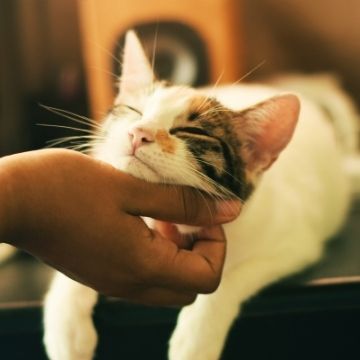How Often Do Cats Poop: Cat Diarrhea and Cat Constipation
Cats’ poop often shows their physical state. As a cat owner, you can learn a lot about your cat’s condition from poop.
Whether it’s your first day to keep a cat or you have lived with cats for many years, please pay attention to it when scooping and cleaning the cat litter.
How often do cats poop?

There is no uniform answer. As a rule of thumb, it is normal for cats to poop once or twice a day.
If your cat is a newborn, it’s normal for her or him to poop more often than adult cats. Diet, exercise or not, medications are likely to change your cat’s poop frequency.
What should cat poop look like and smell?
Color: deep brown. If the poop is black or bloody, take your pal to the pet hospital right now. It can be ascribed to severe illness.
Texture: not too hard or too soft or mushy
Smell: not too foul, but some odor is normal
We can divide the abnormal poop frequency into two groups: cat diarrhea (poop too frequently) and cat constipation (poop less frequently).
Cat diarrhea

There is a host of reasons why your cat has diarrhea.
Sometimes, it comes and goes very quickly. It doesn’t matter if your adult cat has diarrhea for 1 or 2 days unless your cat is elderly or just a kitten.
Other times, it lasts longer for several days, weeks, or even months. Diarrhea can come back to your cat on a regular basis. It might lead to dehydration, dangerous for your cat.
Here are some common reasons why your cat has diarrhea:
- Food allergies or intolerances
- Sudden diet changes
- Inflammatory bowel disease (IBD)
- Intestinal parasites
- Pancreatic diseases
- Hyperthyroidism
- Colitis
If diarrhea lasts for more than two days. Take your cat to the vet to find out the causes and get treatment.
Attention! If there is black or bloody poop, it is alarming you that your cat is in danger. Hurry up to call your vet and get professional guidance. In addition, if diarrhea comes with fever, vomiting, sluggishness, or loss of appetite, your cat needs treatment.
The treatment varies with the cause of your cat’s diarrhea. Your vet will prescribe the drug. If the diarrhea is caused by food allergies or intolerance, IDB (Inflammatory Bowel Disease), or colitis, you will have to control your cat’s diet following your vet’s device.
Milk and yogurt don’t fit your cat since most cats have difficulty digesting them.
Do not change cat food suddenly. Introduce the new cat food to your cat by mixing a small amount of new cat food with the old one until your cat eats all the new cat food in the bowl.
Cat constipation

With constipation, your cat has to strain a lot or even is unable to produce anything in the litter box. Only if your pal shows signs of constipation often should you contact your vet.
Common reasons for cat constipation include:
Over-grooming: Grooming too often will make your cat shed more fur, leading to excessive hair left in the digestive tract
Less intake of fiber: Fiber promotes intestinal movements. If your cat can’t get enough fiber, she or he might have constipation.
Colon problems: foreign matter in the colon; narrow places or tumor; feline megacolon
Spain problems
A well-balanced diet can effectively prevent constipation. If you are not sure what to add to your cat’s food, then consult your vet about it. Exercising and drinking more water helps the waste move in their system.
But if constipation goes out of your control, talk to your vet to figure out the problem.
Litter box problems

Cats are born picky. They are unwilling to poop in a dirty litter box or unfavorable cat litter.
Don’t be idle. Scoop the litter box at least once a day and change the litter box every two weeks.
Don’t you want to keep your room as fresh as possible? Let’s join in the Litter Genie and Lionpapa Litter Genie refill family to seal the smell of your cat’s waste.




